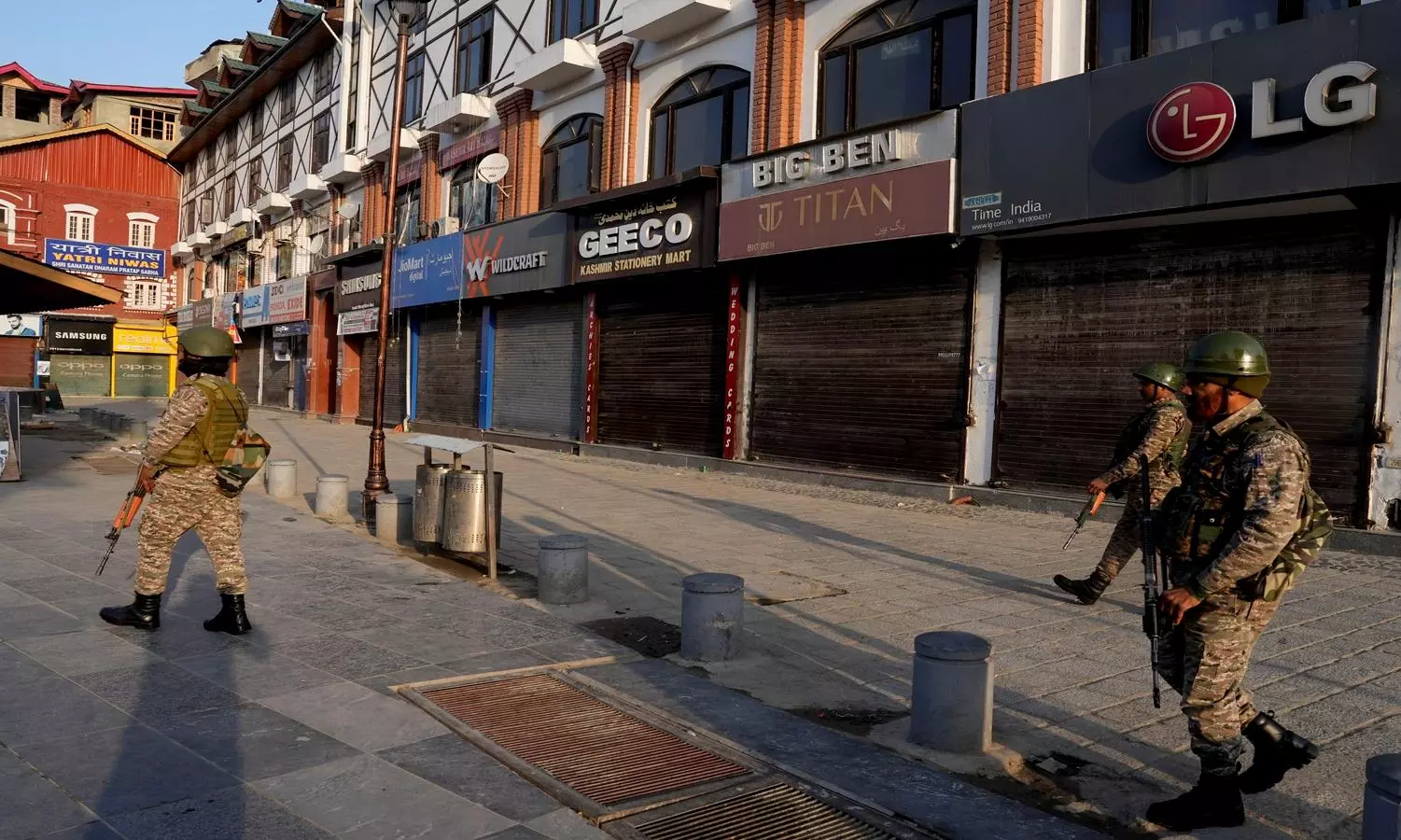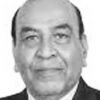Syed Ata Hasnain | Pakistan in Bid to Reverse Kashmir’s Rising Normalcy
Pakistan-backed attack hits peace in J&K; India urged to respond with strength and care

Every right-thinking Indian will commence everything he does today with a prayer on his lips and deep-set anger in his heart. The attack by Pakistan-sponsored terrorists of The Resistance Front (TRF) on innocent Indian and foreign tourists at Basiran near Pahalgam and the loss of a large number of lives needs the severest condemnation. There has to be a response, of course, although I feel we should allow the government to consider the most appropriate one with the best national and international professional advice.
One of the prime reasons for the attack was the fast-diluting relevance of Pakistan in the Kashmir narrative. Let me explain this with the help of an unpublished draft paragraph of the article that I was writing for this very newspaper just two days ago. The paragraph read as follows: “I recently travelled to J&K’s capital city and its suburbs on the banks of the Jhelum, on a quiet weekend. Besides that, I spent some time at an uncharacteristically quiet Line of Control. A calm optimism seemed evident everywhere. Hostility, which was so evident in the eyes of the population earlier, seemed to be fading. Practiced observers like me can probably feel the change in the air, through the looks people give you and the conversations they make.
None of these alluded to anything negative.
Which is why I sense danger, and not without reason. When statistics start to indicate normalcy and minds start to accept this, the point of danger becomes evident. A strange paradox, but true”.
This article remained unpublished in the light of the terrorist attack.
However, it’s not difficult to explain the premonition. Pakistan has invested just too much time, energy, resources, lives and finances in fighting the proxy war in Jammu and Kashmir. Even with its internal situation so tenuous in Balochistan and Khyber Pakhtunkhwa, its Army chief keeps spewing out hatred instead of looking towards stabilising the borders through a better relationship with its chief adversary. What Pakistan wants is a return to its old relevance to neutralise just what I wrote in my unpublished observation reproduced above. The Deep State and the Pakistan Army (which is a part of it) found this time very relevant.
First, much attention of the security establishment was focused on Kathua.
Then there was an impending bumper tourist season in the offing, with a reported eight lakh tourists visiting the Tulip Garden at Srinagar. With the coming holiday season, the numbers would have exceeded all records. With money in the pocket and peace in the streets, families looking towards Pakistan would be history. That is exactly what Pakistan did not want.
To put India under intense pressure, Pakistan knows that the sometimes-tenuous communal temperature can be incendiary. That is why these terrorists specifically profiled the tourists, ensuring that Hindus would be targeted and inflammatory messages addressing India’s Prime Minister would be relayed. Besides this, the current visit of US Vice President J.D. Vance to India reminds one of a similar incident in March 2000.
US President Bill Clinton was on a visit to India and was to speak to India’s Parliament. The night before that, the Lashkar-e-Tayyaba struck at Chittisinghpura, a minority Sikh village in South Kashmir, killing 36 Sikhs, in an apparent message to the US President that Kashmir was not in India’s control. This may be a more appropriate time in Pakistan’s perception to target the current emerging normalcy and India’s control over the Union territory. It is reported that Pakistan, and its military leadership in particular, is seething at the humiliation of huge losses suffered in Balochistan and its inability to get the better of a worsening internal security situation, which also involves the Afghanistan border and the tribal areas. At the first instance, it lays the blame on India. Retribution has been a Pakistani philosophy and doctrine of war and this terror strike is a result of that.
One would have accorded greater rationale to Pakistan’s strategising capability but we are aware that its generals act first and think afterwards.
The internal security situation, coupled with its failed economy hardly affords Pakistan the ability to risk a serious conventional conflagration with India. Therefore, applying rationale, one would surmise smaller acts, a combination of many of these to attempt to achieve something quite similar that they wish to achieve through Pahalgam. It would be less risky too.
However, knowing the Pakistani mind, these irrational acts will continue.
That is why it’s up to India to ensure that it responds, but only after thinking through. The one thing we definitely need to do is to eschew every Indian becoming a strategist and proffer advice to the government.
Remember, we have an elected government in place, unlike that of Pakistan. Such a government looks at the national interest from every angle. It has a set of professionals who will advise, plan and execute. We should have the fullest faith in the political and military leadership and leave it to their sense of proportion and timing.
While it is a hugely sentimental moment which has shaken up India’s deep-rooted psyche, we cannot afford sentiment alone to rule our judgment.
There are thousands of innocents of all communities, good loyal Indians who are the heart and soul of our nation. We must ensure unity among our people despite the gravest of provocations and this one is definitely not the last of them.
The way forward is to ensure that Jammu and Kashmir’s progressive normalcy is enabled at any cost. With the terrorist strength small, the flow of intelligence will also be limited. Hence there has to be greater anticipation of potential actions which can upset the applecart in favor of the adversaries. Remember there are other linkages here, and India needs to get the pro-active diplomatic domain on J&K re-activated so that our narratives are the predominant ones. There should be no dilution in our outreach programmes resulting from the inevitable negativity that an event such as Pahalgam tends to send out. The political environment is not yet vitiated, and a certain maturity is evident all around. We can all understand how difficult it is for those who have suffered as families but the biggest neutralisation of Pakistan’s Kashmir strategy will be to make sure it does not regain any of the space that it has lost over the last couple of years.
As far as a response to Pahalgam is concerned, we will await the decisions of the government, which knows this best.
The writer, a retired lieutenant-general, is a former GOC of the Srinagar-based 15 (“Chinar”) Corps
